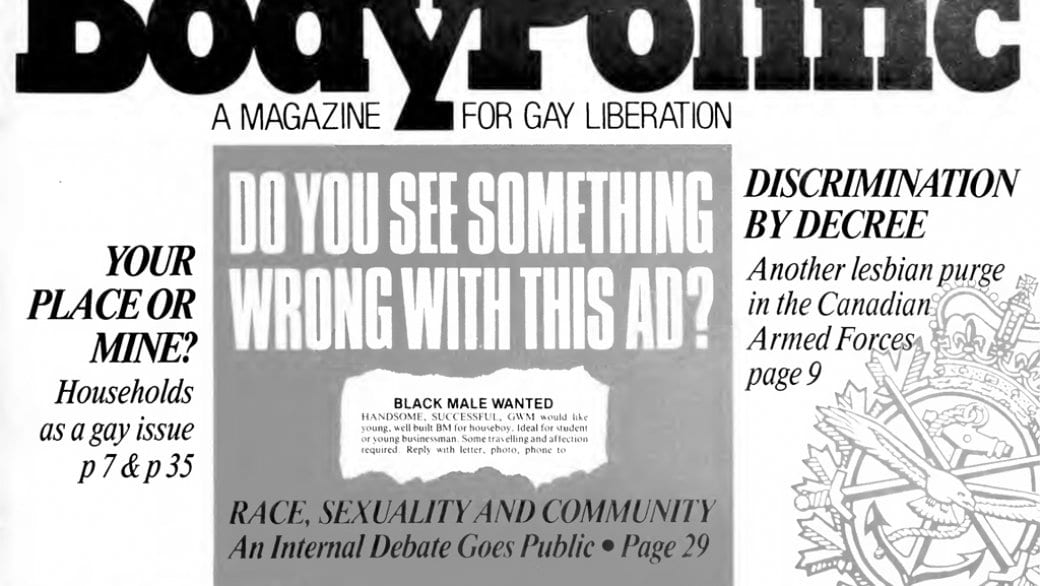Boxing enthusiasts often refer to the sport as the “sweet science” — a phrase that acknowledges the artistic yet methodical nature of boxing. Most spectators, however, probably find it ironic that such an adjective describes what’s regularly a bloody scene.
If boxing isn’t necessarily sweet inside the ring, it certainly has the potential to be so outside of it. Savoy “Kapow” Howe and her Toronto Newsgirls Boxing Club are proof that sweet release can come with boxing.
“A heavy bag is cheaper than therapy,” Howe says. “We hold so much in our bodies. If we don’t let it out, we almost turn it inwards.”
Howe, 47, is the founder of the Toronto Newsgirls, an east-end gym located near Gerrard Street East and Carlaw Avenue. While there are many boxing clubs in the city, this one’s special. It has an express mandate to provide a space for women and trans folk to explore boxing safely.
Now in its 17th year, the club has been a positive force in the lives of more than 2,000 former students. And yet it owes its beginnings to the mean streets of Toronto in the early 1990s.
When Howe moved to Toronto fresh off earning a theatre degree from McMaster University, she had more than landing an acting gig in mind. She wanted to live openly as a lesbian, something that hadn’t seemed feasible in her hometown of Miramichi, New Brunswick.
But it wasn’t all rainbow flags in Toronto, either. “At that time there were a lot of stories of gaybashing,” Howe says. “I didn’t want to be afraid.”
A chance look at a newspaper photo of a woman decked out in boxing gear curbed that fear. “It was like a light bulb went on,” she says.
Boxing was the answer. She had to learn to box. This realization took her to the doors of the Toronto Newsboys Boxing Club, which in 1992 was located at Broadview and Eastern avenues. There were very few women at the gym and the status quo was to ignore Howe. So she was caught off-guard when somebody finally approached her. One of the guys at the gym asked her to get in the ring and she did, expecting some fair sparring. That’s not what happened.
“He kicked the shit out of me,” Howe recalls.
When it was over, she retreated to the broom closet she usually changed in and cried. For weeks she stayed away from the gym, but ultimately, her love of the speed bag called her back. The next time someone approached her, she had nothing to fear.
Ray Marsh, one of the gym’s owners, made it a point to offer Howe some guidance. “She came in and she was very determined,” says Marsh, 69. “I respected her tenacity.”
The two soon learned they had more than boxing in common. Marsh studied theatre at the University of Toronto and in 2001 performed alongside Howe in a play she wrote called Doohnamow. Howe has written four plays and performed in all of them.
Marsh has coached Howe for more than 20 years. He’s been in her corner for a few fights, but one of those was a defining moment. In 1993, Howe fought in and won her first official fight, which is considered one of the earliest sanctioned women’s boxing matches organized in Toronto.
Not everyone was happy with the choice of Howe for the important fight. Marsh says a few people asked, “Ray, why are you sponsoring and training this gay woman?”
She wasn’t even publicly out then. But that was about to change. Howe came out big in 1993 when she discussed being a lesbian boxer in the documentary For the Love of the Game. In 2011, Outsports chose the event as number 96 in its “100 most important moments in LGBT-sports history” series.
“It kicked my closet doors off the hinges, which was probably the best thing ever,” Howe says.
Howe, who by then had come out to her parents, claims that she “had nothing to lose” by coming out publicly and that, by contrast, she felt others had something to gain. “It was wanting to show people that there are other lesbians out there.”
More changes followed when in 1996 the Newsboys, under the new name Unitas Boxing Club, moved to the corner of Queen Street East and Greenwood Avenue. Howe decided she, too, should switch things up a bit. To supplement her income as an attendant care worker, she plunked on her coaching cap. She put up posters that advertised “Boxing for Women,” and in less than two months 40 women had signed up. With this move, the Toronto Newsgirls Boxing Club was born.
“It kind of came out of desperation,” says Howe, who didn’t want to have to make ends meet waitressing. “Thank god.”
By 1998 it was time to leave the boys behind. Newsgirls moved into Sully’s Boxing Gym in the west end, which was closed to the public on weekends, allowing Howe to rent the space for women-only classes. When Sully’s owners closed that location in 2006, Howe started looking for a permanent home for her club. The Newsgirls trained in parks for a few months before moving into the gym’s present location.
The move also meant an end to a 16-year career in attendant care for Howe, who decided to coach full-time. “As soon as I started coaching, it was my passion,” she says. “I don’t want to be a business owner. I just want to be a coach.”
But she’s got a business, and like so many others, it struggles.
“We still survive month to month,” says Howe, who claims new promotions keep the gym going. “Where there’s a will, there’s a way.”
She should know. Her achievements include winning silver in the 1995 and gold in the 2010 provincial championships. She also won silver at the national level in 2010. Her hardware is particularly impressive when you consider she’s been in only 15 fights, holding a record of eight wins and seven losses.
Her accolades outside the ring are even more notable.
Most recently, Howe won the 2013 Steinert & Ferreiro Award, which recognizes leadership in the queer community with a cash prize of $10,000. In 2010, she took home the Senator Nancy Ruth Award for a demonstrated commitment to women throughout her life and career. She also won an Coaching Excellence Award from the Coaches Association of Ontario in 2011, under the grassroots category.
It’s the little things that make Howe a good coach. For instance, she gives all gym members a nickname, usually based on a talent or passion. “A lot of people think they’re weaklings,” she says. “Having that name gives them something to work towards.”
From time to time, however, she goes big as well. While she doesn’t cling to the title of activist, there’s one fight she holds particularly close to her heart: supporting trans people. For Howe, that meant developing a trans-inclusion policy for the gym.
“She wanted to address the community and provide more opportunities for them,” says Cathy Van Ingen, an associate professor of kinesiology at Brock University, who helped draft the policy. “We did several revisions on it until we felt it was reflective.”
Howe turned that support into results in 2007 when the Newsgirls partnered up with Brock University, Opportunity for Advancement and the June Callwood Centre for Women and Families to create Shape Your Life, a recreational boxing program for women and trans people who identify as survivors of violence.
This free program encourages participants to get in touch with healthy aggression. They don’t hit each other but instead grasp techniques by hitting bags and practising shadow boxing. Those who consent also get the opportunity to chase, which allows them to take on an opponent in the ring who only blocks punches and doesn’t hit back. Shape Your Life participants get a free three-month membership to the gym after graduating from the program.
Funding for the first year was made possible through a grant provided by the Ontario Ministry of the Attorney General Victim Services Unit. When those initial funds dried up, Howe thought to ask for donations at a Newsgirls event. It worked. One woman donated $80,000, which the club split equally over the following four years.
In 2010, Howe and a program partner went to Jakarta to share the Shape Your Life program. It’s the second of the Newsgirls’ trips abroad, as Howe and two others had in 2003 travelled to Tokyo to train with an all-female boxing gym whose members had trained in Toronto the year prior.
Today, a City of Toronto community-safety investment grant funds Shape Your Life. While the program used to run for 12 weeks and provided childcare, fewer funds means it now runs for seven weeks and no longer provides childcare. The program does, however, still offer participants snacks and refreshments, some equipment and TTC tokens.
The last week of Shape Your Life focuses on the Think Outside the Ring art project, which started back in 2011 when Howe couldn’t find it in her to throw away the old canvas cover for the gym’s boxing ring because it held so many memories. So instead, she had it cut up into 80 pieces and set them aside. When Colleen “Splatter” Dockstader, 44, showed up at Newsgirls in January 2012 as a Shape Your Life participant, suddenly those pieces had use.
With Dockstader at the helm of Think Outside the Ring, half of Shape Your Life’s participants decided to take part in the art project. “It either came out as their story or the empowerment they got afterwards,” Dockstader says of the paintings produced.
The project has had two exhibits and Dockstader is currently looking for new places to display the group’s work.
Greg Bernard, 21, is another former Shape Your Life participant. He requested that Xtra use a pseudonym, as he is a survivor of abuse and doesn’t want his identity disclosed. Bernard came to Newsgirls last January after setting out to find a program that catered to trans survivors of violence like him but soon found out that was no easy task. Fortunately, he contacted someone at the 519 Church Street Community Centre, who told him about Shape Your Life.
Immediately, Howe’s caring and attentive nature struck Bernard. “With Savoy, she’s very, very good at making people feel safe,” he says, noting that Shape Your Life taught him how to access power he didn’t even know he had and that it’s changed the way he views himself. “It made me realize just how powerful I could be and that I am not weak,” he says. “And I never was weak.”
The experience has also led Bernard to believe that there needs to be more places like Newsgirls. “Here at Newsgirls, it’s all very welcoming,” he says. “Trans women, trans men, non-binary people — everyone is welcomed and everyone is accepted and treated with respect.”
That sounds pretty sweet.
For more information about the Newsgirls, go to torontonewsgirls.com


 Why you can trust Xtra
Why you can trust Xtra


